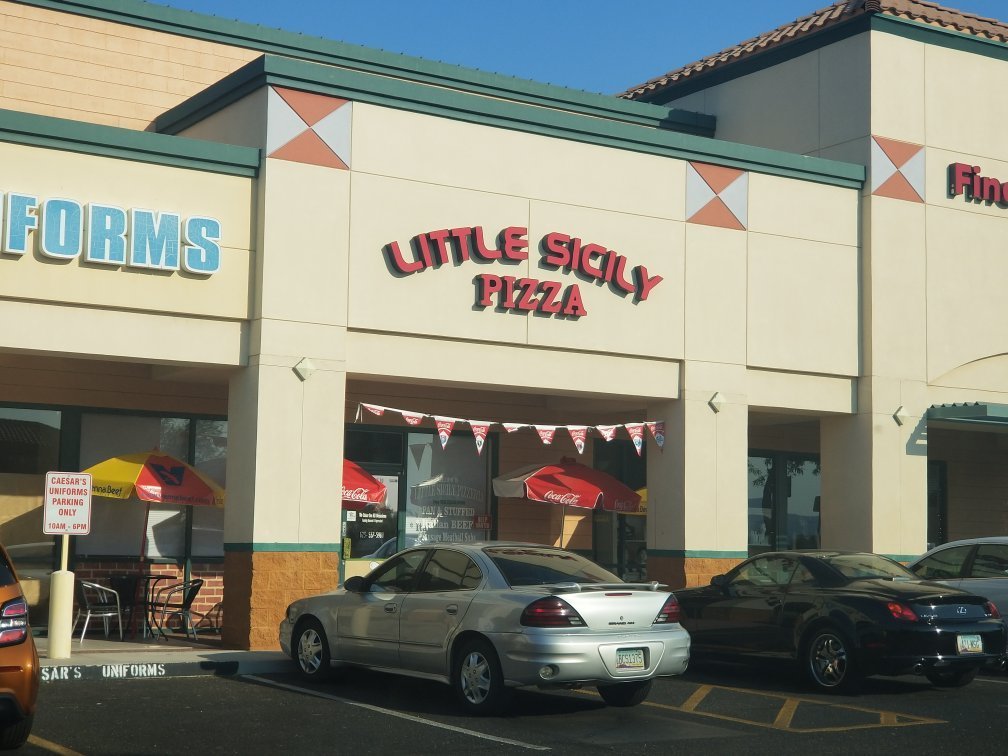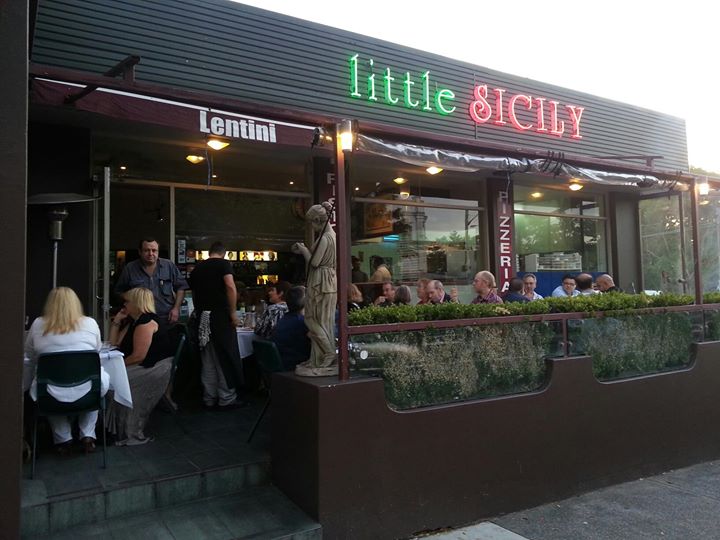Is there a place where the vibrant spirit of the Mediterranean, the warmth of the Sicilian sun, and the intoxicating aromas of its cuisine can be found far from its shores? Yes, and its a thriving microcosm, a testament to the enduring power of culture and community, waiting to be discovered.
The term "little sicily" evokes a sense of place, a feeling, and a reality. Its more than just a geographical location; it's a living, breathing entity that embodies the essence of Sicily in a different locale. These havens, scattered across the globe, serve as cultural outposts, safeguarding traditions, fostering community, and offering a unique slice of Sicilian life to those who seek it, whether they be descendants of the island's people or simply admirers of its rich heritage. They are often found in locations with significant historical immigration patterns from Sicily, creating pockets of concentrated Sicilian culture and identity.
The heart of "little sicily" beats with the rhythm of its people. These communities are often defined by their strong family values, passionate expressions of art, music, and religious practice, and, most importantly, their unwavering commitment to preserving their ancestral heritage. The scent of freshly baked cannoli, the sounds of spirited conversations in the Sicilian dialect, and the sight of festive celebrations all contribute to the authentic atmosphere that permeates these spaces. It's a place where the past is ever-present, where tradition is cherished, and where the bonds of kinship are paramount.
The culinary landscape within "little sicily" is a vibrant tapestry of flavors. The aroma of sfincione, the rich taste of pasta con le sarde, and the delicate sweetness of cassata cake are just a few examples of the gastronomic treasures that can be found. Local markets overflow with Sicilian ingredients, sourced from both local farms and imports from the island itself. Restaurants and trattorias serve authentic dishes, prepared with time-honored recipes passed down through generations, often using techniques and ingredients that are unavailable elsewhere. Beyond the food, there's the social aspect of sharing a meal, a fundamental component of the Sicilian way of life, and in "little sicily," this is cherished.
Furthermore, "little sicily" is a reflection of the Sicilian diaspora. Starting from late 19th century, Sicilians left their homeland to find new opportunities around the world. They carried with them their traditions, language, and customs. These emigrants sought economic stability or escape from social issues, bringing their culture and heritage to new parts of the world. As these communities grew, they often established institutions such as social clubs, churches, and cultural organizations. These places, providing support and connection, helped newcomers adapt to a new environment while sustaining their cultural identity.
The cultural significance of "little sicily" extends beyond food and family. It's a living museum, showcasing the arts, music, and religious traditions of Sicily. Festivals, celebrations, and religious processions mirror those on the island. Musicians playing folk songs, artists creating vibrant depictions of Sicilian life, and craftspeople preserving age-old trades contribute to the cultural landscape. Even the architecture of a "little sicily" often features buildings that are inspired by the architecture of Sicily, providing a visual connection to the homeland.
The preservation of the Sicilian language is an essential element of these communities. While Italian may be the official language of Sicily, many Sicilians speak a dialect unique to their region. "Little sicily" acts as a center of language transmission, helping to ensure its survival. In many of these places, Sicilian is spoken at home, in social gatherings, and at cultural events. Language classes and cultural workshops also help younger generations remain connected to their heritage.
The concept of "little sicily" is not simply a nostalgic exercise; it is a vibrant example of cultural resilience. These communities are constantly evolving, adapting to new circumstances, while at the same time, holding firm to their core values. They are a reminder of the importance of cultural diversity and heritage. They stand as a testament to the enduring power of the human spirit and the capacity to create a home away from home.
Each "little sicily" takes on its own character, influenced by the local setting and the specific experiences of the people who created it. Some are large and well-established, others are smaller and more tightly knit. Some are located in major cities, while others are in more rural areas. Despite their differences, they all share a common thread: a commitment to preserving the Sicilian heritage and providing a place for individuals of Sicilian descent and people with similar interests to thrive.
A notable example of "little sicily" is found in New York City, specifically in areas like Brooklyn. Beginning in the late 19th and early 20th centuries, waves of Sicilian immigrants arrived in search of work and a better life. They clustered in neighborhoods, creating strong communities that reflected their culture. The streets of these neighborhoods are filled with Italian delis, trattorias, and bakeries. The vibrant atmosphere of these communities, the festivals, and the annual feasts dedicated to saints are also a core part of life. The presence of such cultural institutions proves the vitality of Sicilian culture far from its original homeland.
Beyond New York, "little sicily" communities can be found in other cities, such as Detroit, Chicago, and Toronto. Each of these places has its unique character, shaped by the local environment and the experiences of its community. The history and story of each community underscores the adaptability and resilience of Sicilian culture.
The efforts to preserve Sicilian culture extend to education, with language classes, cultural workshops, and historical societies playing crucial roles. These institutions work to ensure that the next generation continues to value and participate in their heritage. These activities reinforce the idea of a "little sicily" and help it thrive.
Moreover, in today's world, technology and globalization are influencing these "little sicilys". Through the internet, the communities can maintain contacts with the island. Social media sites, online forums, and virtual events allow them to share information and stay connected, even if they are thousands of miles away. These digital connections supplement the traditional aspects of the community, helping it thrive in a modern world.
The future of "little sicily" depends on the efforts of its members to uphold the traditions and pass them on to future generations. It is essential to preserve the language, the customs, and the spirit of the community. Through education, celebration, and a deep sense of belonging, these outposts of Sicilian culture will continue to prosper. The concept of "little sicily" acts as a vibrant link to the past. It is also a source of identity and strength for its community.
It is the ongoing endeavor to maintain this heritage that gives "little sicily" its enduring appeal. It is a vibrant example of the enduring human spirit and the human capacity to maintain a sense of community and place, no matter where they are in the world. For anyone who wants to understand the essence of Sicilian culture and heritage, exploring a "little sicily" is an essential journey.
Consider a hypothetical individual: Let's call him Antonio Rossi. This is a common Italian surname. He is a fictitious character to illustrate the concept further.
| Attribute | Details |
|---|---|
| Full Name | Antonio Rossi |
| Date of Birth | April 15, 1978 |
| Place of Birth | Palermo, Sicily |
| Current Residence | Brooklyn, New York (hypothetical) |
| Ethnicity | Sicilian-American |
| Languages Spoken | Italian, Sicilian Dialect, English |
| Education | B.A. in Italian Studies (University of Palermo), M.A. in Culinary Arts (Culinary Institute of America) |
| Career | Chef, Restaurateur |
| Professional Experience | Executive Chef at "Trattoria Sicilia" (Brooklyn), Owner of "Dolce Vita Bakery" |
| Notable Achievements | Awarded "Best Sicilian Chef in New York" (2022), Featured in "Food & Wine" magazine (2023) |
| Community Involvement | Member of the Brooklyn Sicilian Cultural Society, Organizer of the annual Feast of Santa Rosalia |
| Reference | Sicilian Culture Organization (Example - Replace with a relevant and credible website if possible) |
This fabricated profile of Antonio Rossi exemplifies how the concept of "little sicily" manifests itself on an individual level. His life, from his upbringing in Sicily to his career in New York, perfectly illustrates the enduring connection to Sicilian heritage. He brings his culture into his daily life, through his skills in culinary arts, and his active participation in community events, proving the dynamic nature of these communities.
The story of "little sicily" is one of cultural preservation, resilience, and community. It's a place where the warmth of the Sicilian sun can be felt, regardless of the latitude. It is a symbol of the strength of cultural identity and the enduring bond of the Sicilian people. These communities, existing around the world, are places that serve as reminders to the beauty of diversity and tradition. These places demonstrate the adaptability of the human spirit.


